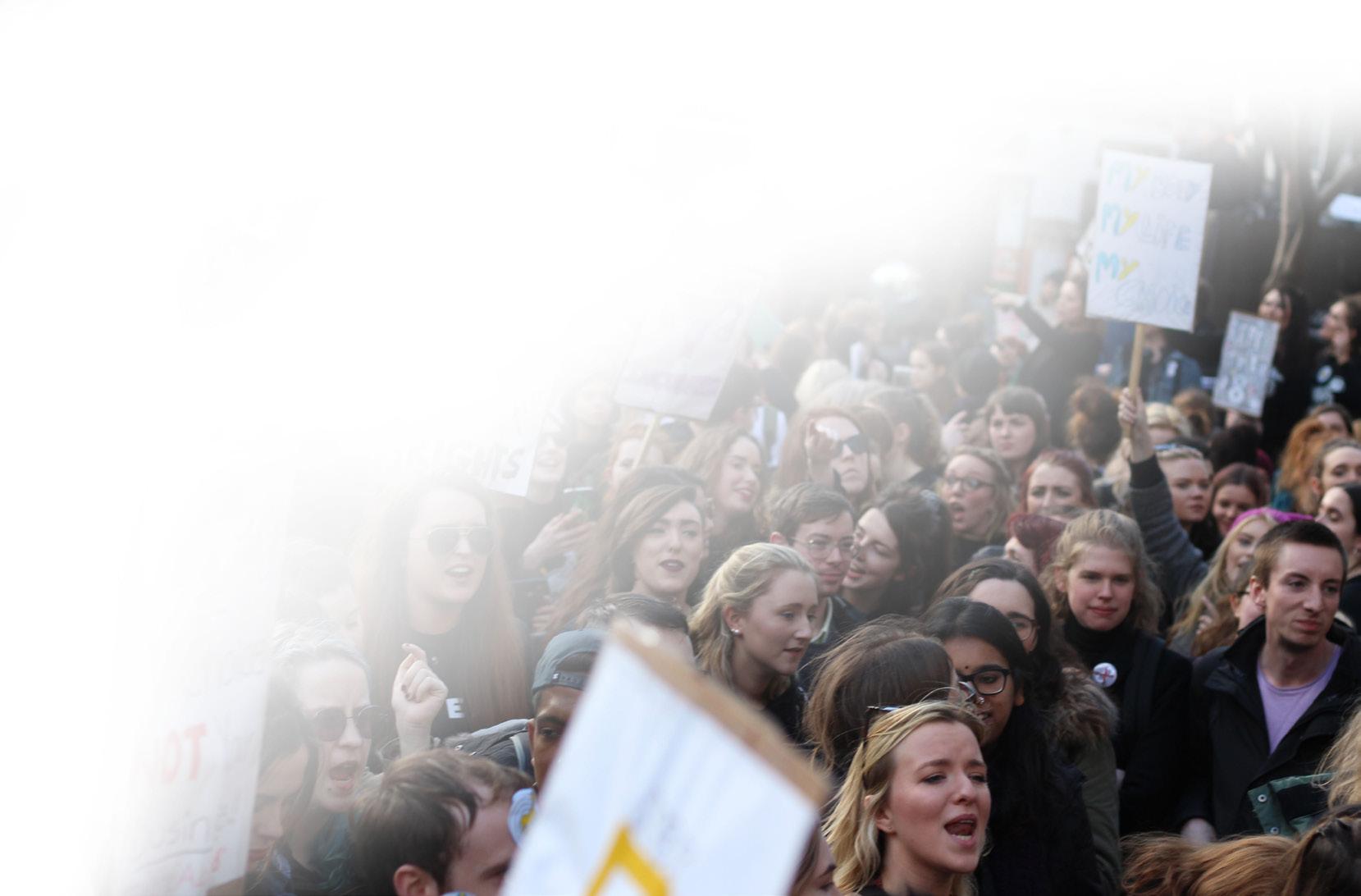
3 minute read
A look into the ECHR’s stance on conscientious objections of pro-life health care providers in relation to abortion
A look into the ECHR’s stance on conscientious objections of pro-life health care providers in relation to abortion
for us to examine on the topic is that of Pichon and all actions which are motivated by a religion or a such, the Court held that this case did not fall under Article 9. Here, the court relied upon previous judgements rather than dealing comprehensively with conscientious objection in health care. Had they accepted the applicants’ actions as a manifestation of their religion, and subsequently discussed what
Advertisement
constitutes reasonable interference with that right, the law on conscientious objection in healthcare MAEBH NI GHUAIRIM would have been a lot clearer. As it stood, what is SS LAW AND POLITICS most evident is that public healthcare workers cannot prioritize their beliefs over their professional Since May 2018, when Ireland voted to repeal a other private channels. This implies that the court constitutional amendment that made abortion legal, takes a balancing approach when determining pro-life health care providers have been lobbying whether an interference with an individual’s freedom to be granted freedom of conscience. The Health of conscience was legitimate. Minister has promised that GPs will not be forced If the court accepted that refusing to sell to perform abortions, however he maintained contraception was a manifestation of religious that they will have to refer their patients to a nonbeliefs, they would have used a triple-pronged test objecting provider. Pro-life groups feel that this still to see whether or not the State’s interference was breaches their rights and have pledged to bring the legitimate. The interference must be “prescribed by case to the European Court of Human Rights. The law”, have “legitimate aims”, and be “necessary in question this article attempts to answer is whether a democratic society”. In Pichon, the interference or not conscientious objection to the provision of was lawful as there were no laws exempting the healthcare is covered by Article 9 of the European pharmacists and the French State had legitimate Convention to Human Rights and will do so by first aims in hoping to protect public health. Lastly, it looking at the relevant case law before applying it was accepted as necessary in a democratic society to Ireland. Thus far, the Court has been reluctant to as it is vital that women have access to reproductive engage fully with the issue of conscientious objection healthcare. Ensuring that pharmacists provide such to healthcare. That being sad, the most relevant case care was deemed a proportionate response. Sajous v. France. Since Pichon, the court has looked at several cases In this case, two French pharmacists were convicted abortion. Although the court has not recognised the of refusing to sell contraception to three women. right to abortion, in R.R. v Poland, the Court held The applicants argued that as Christians, they had that once a State decides to allow abortion, they a religious and moral objection to contraception cannot establish obstacles which prevent women and the conviction was an affront to their right from accessing the procedure. Furthermore, if they to freedom of religion. The Court, however, held allow for the exercise of conscientious objection, that their application was inadmissible as their they must put a system in place to ensure that conviction did not fall under Article 9. It reaffirmed patients have access to the healthcare that is legally that citizens must be free to hold religious beliefs, available to them. In P. and S. v. Poland, this position however it distinguished between the holding of a was confirmed. Moreover, the State must ensure belief and the manifestation of said belief. Article 9 that the system is enforced, there should at least be a protects religious practices which are closely linked prior record of objection and that referrals must be to the exercise of religious beliefs but does not cover given to the patients. moral conviction. Additionally, this protection only As such, should an Irish case on conscientious covers most private, rather than public, actions. As objection come to the ECHR, it is doubtful the obligations, as they can express their beliefs through in Poland dealing with conscientious objection and









